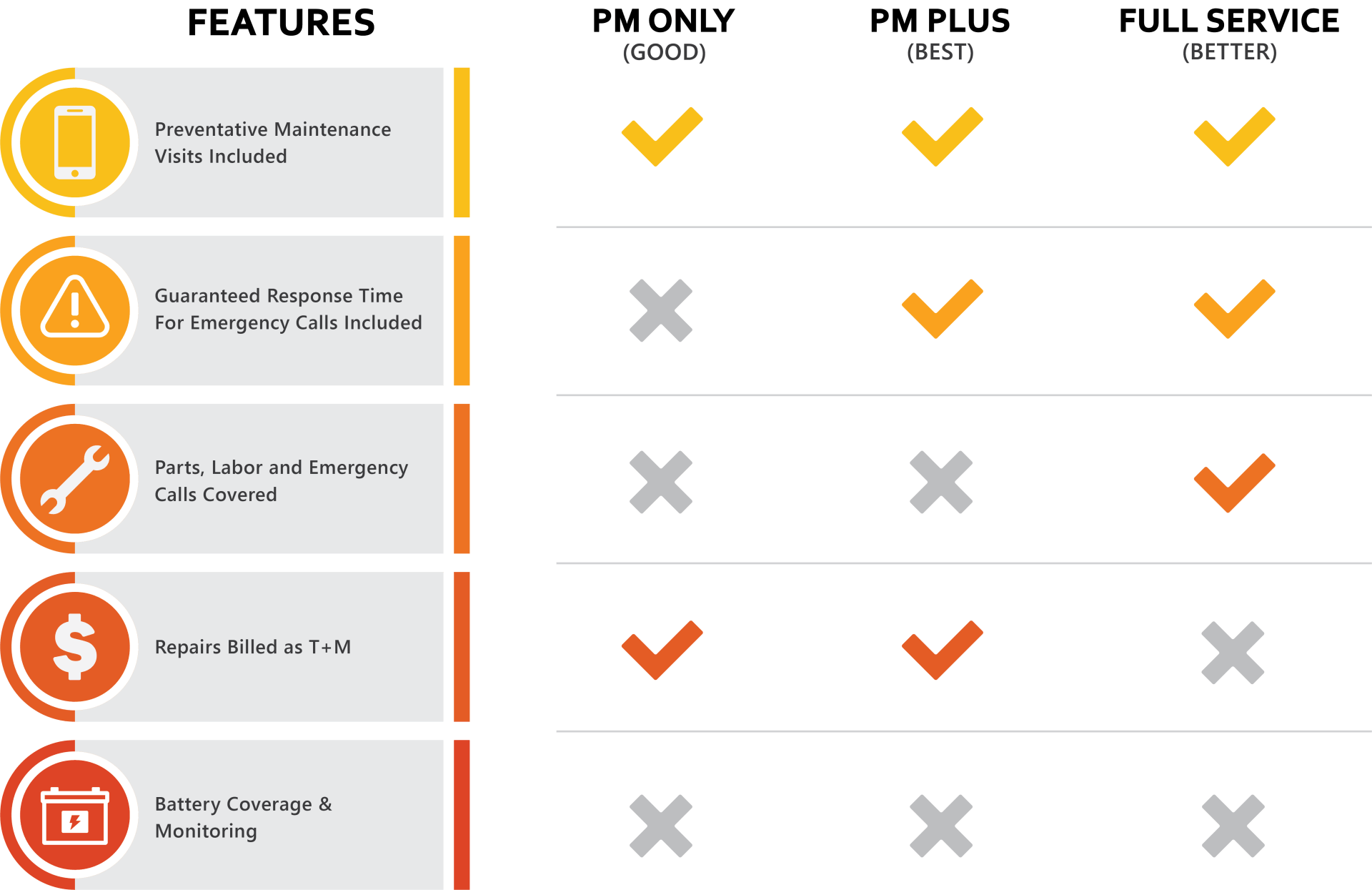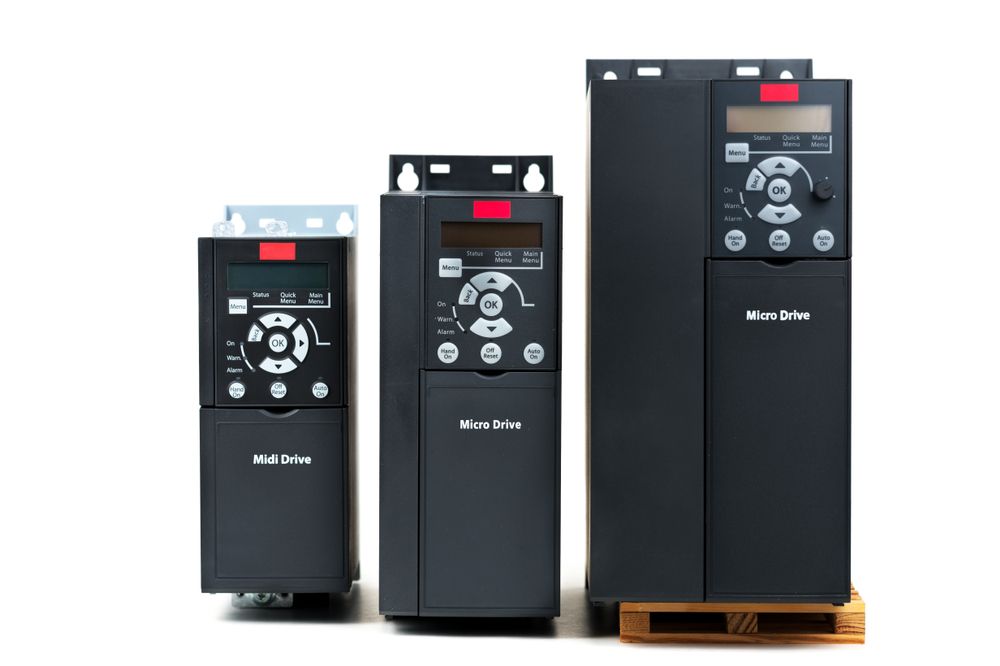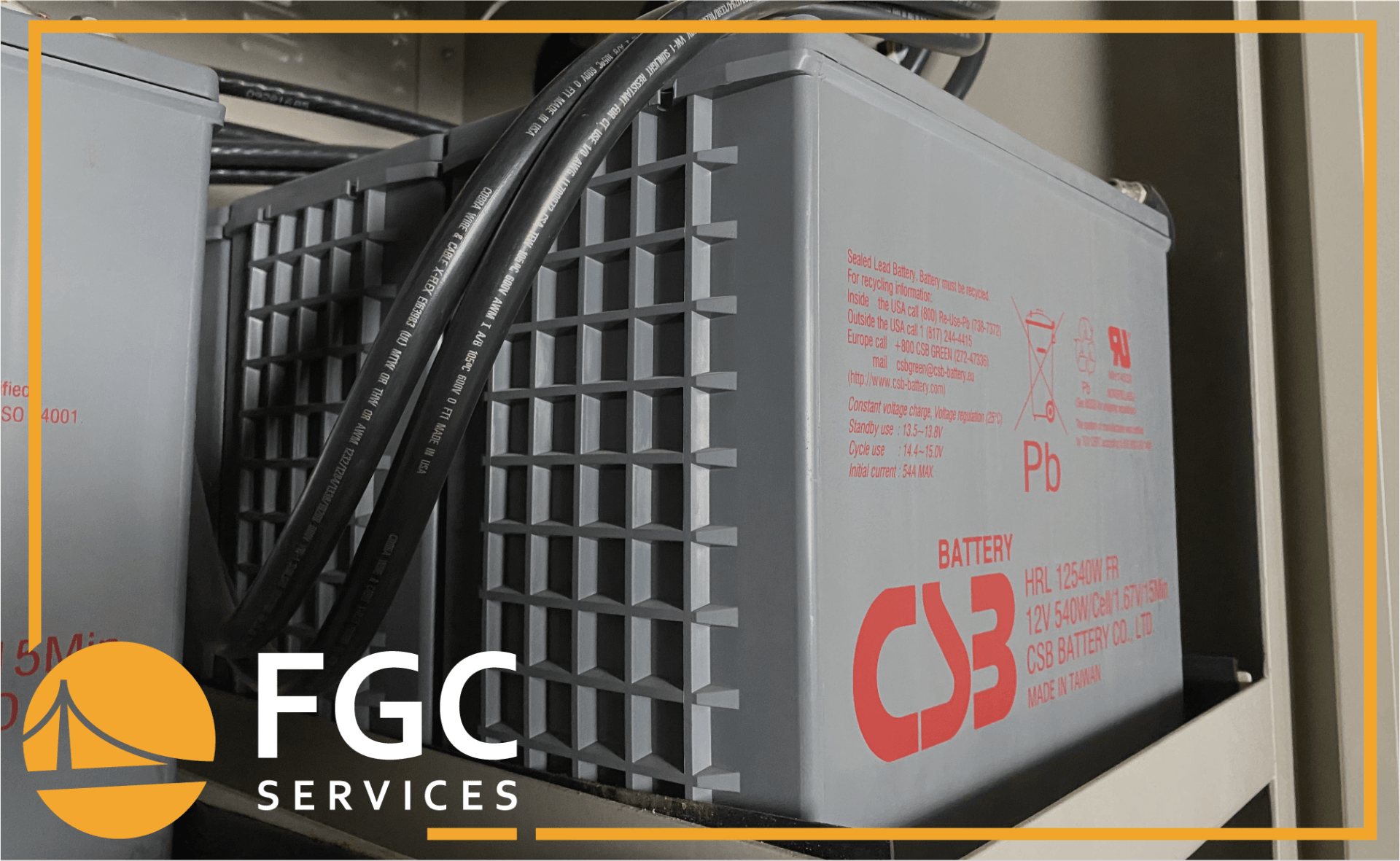UPS Service Plan Options: Which is Right for You?
18 August 2025
Share this article:
Imagine this: a severe storm rolls through overnight, knocking out grid power to your facility. Your UPS system, the backbone of your backup power, should bridge the gap until generators kick in. But instead, batteries fail and your critical systems go dark.
Servers crash mid-operation, manufacturing lines grind to a halt, and data is lost. Recovery takes hours or days, costing tens of thousands in lost productivity, potential regulatory fines, and reputational damage.
This scenario isn’t hypothetical. It’s a real risk that facility managers, IT leaders, and operations professionals face every day. And often, it comes down to one overlooked factor: failing to maintain and proactively service the very equipment meant to protect your business from downtime.
Why a UPS Service Plan Isn’t Optional
A UPS is your facility’s shield against power disruptions, voltage fluctuations, and unexpected outages. But like any piece of mission-critical equipment, it can fail, especially without regular maintenance and expert oversight.
Batteries degrade, internal components wear out, and dust or environmental conditions can undermine performance. That’s why a proactive UPS service plan isn’t a luxury. It’s essential to safeguard your facility, your data, and your bottom line.

Benefits of a Regular UPS Service Plan
A strong UPS service plan offers clear, practical advantages:
Minimize Downtime & Operational Disruption
Scheduled preventive maintenance and testing identify problems before they cause unexpected shutdowns.
Extend the Lifespan of Your UPS
Routine checks, cleaning, and timely part replacements help your UPS perform reliably for years to come.
Gain Peace of Mind with Expert Oversight
Know your system is monitored and supported by certified technicians, 24/7 if needed.
Save Money in the Long Run
Preventive care and early intervention cost far less than emergency repairs, lost production, or equipment replacement.
Improve Compliance & Insurance Readiness
Documented service visits support regulatory compliance, smoother audits, and may even lower insurance premiums.
What is Typically Included in UPS Service Plans
While details vary, most UPS service plans include:
- Preventive maintenance visits and detailed reports
- Battery testing, replacement recommendations, and safe disposal
- Emergency on-site service (depending on plan level)
- Remote monitoring with real-time alerts
- Discounted or included parts and labor
- 24/7 access to technical support
FGC’s UPS Service Plans: What You Get
At Facility Gateway Corporation, we offer flexible, nationwide service plans designed to fit your facility’s needs, equipment status, and risk tolerance. Here’s how each option compares:
PM Only Contract
- Scheduled preventive maintenance visits, testing, and detailed reporting
- Emergency service dispatched by FGC with best-effort guaranteed response time
- Technical support provided by FGC
- For systems where the OEM warranty has expired
- Parts and labor are quoted separately as needed
This plan is ideal if you want routine maintenance and support but prefer to handle parts and repairs on a pay-as-you-go basis.
PM Plus Contract
- Includes all features of the PM Only Contract
- Emergency service dispatched by FGC
- Guaranteed response time for emergency calls
- Technical support provided by FGC
- For systems where the OEM warranty has expired
- Parts and labor quoted separately, but you receive priority scheduling
PM Plus offers extra peace of mind with guaranteed response times, making it a great fit for facilities that require faster service but want to manage parts and repair costs separately.
Full Service Contract
- Includes all features of the PM Plus Contract
- Emergency service dispatched by FGC
- Guaranteed response time included
- Technical support provided by FGC
- For systems where the OEM warranty has expired
- Parts covered by FGC
- Labor covered by FGC
Full Service provides the most comprehensive protection, covering both parts and labor along with guaranteed response times. It’s the best choice for facilities where downtime isn’t an option and budget predictability is key.

How to Choose the Right UPS Service Plan
Choosing the right plan isn’t just about price. It’s about understanding your facility’s risks, equipment condition, and operational demands.
Assess Your Critical Power Needs
How much does downtime cost you? Facilities supporting healthcare, data centers, and continuous manufacturing often need the most robust coverage.
Evaluate Your Current Equipment & UPS Age
Older UPS systems typically require more frequent checks and proactive component replacements.
Compare Plan Features, Not Just Price
Cheaper plans may leave you paying out-of-pocket during emergencies, which can cost far more in the long run.
Consider Your Budget & Risk Tolerance
Balance immediate costs against the potential price of downtime, repairs, and lost productivity.
Protect Your Facility with a Proactive UPS Maintenance Plan
Your UPS system protects your operations, but it needs proactive care to do its job. Facility Gateway Corporation offers the expertise, nationwide reach, and fast response times to keep your power protected and your facility running.
Don’t wait for failure to find out what your downtime truly costs.
Contact FGC today to build the right UPS service plan for your facility.
Connect with Us:





